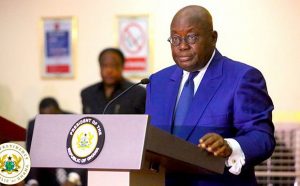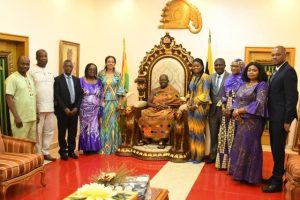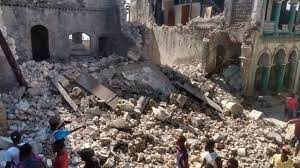The Mastercard Foundation will provide $1.3 billion to support the coronavirus vaccination program in Africa, the continent with the lowest inoculation rate.
Funding under the so-called Saving Lives and Livelihoods initiative will be deployed in partnership with the Africa Centres for Disease Control & Prevention to urgently procure enough shots for more than 50 million people. The foundation will also support the African Union’s push to manufacture locally as much as 40% of the vaccines needed on the continent.
Mastercard Inc., the world’s second-largest payment network, created the Mastercard Foundation in 2006 and it operates independently under the governance of its own board.
More than 80% of the Mastercard Foundation funding will go toward purchasing vaccines from Johnson & Johnson, according to the organization’s president and chief executive officer, Reeta Roy. “Vaccines under this initiative will begin to be available in August,” she said in an emailed response to questions.
The Mastercard Foundation will acquire the J&J doses at a negotiated price after an agreement between the company and African authorities, Roy said. Under the arrangement, Africa has been given discounted access to at least 220 million vaccines.
Only 2.4% of Africa’s population is inoculated, compared with a global average of 13.8%, according to Africa CDC and Bloomberg Economics data. The program has slowed because of interruptions to supply from India, where most of the AstraZeneca Plc doses the region was scheduled to receive are manufactured, along with vaccine hesitancy and slow distribution of shots received.
“Addressing this inequity is a moral imperative,” Roy said in a briefing Tuesday. “It demands a response from government, from the private sector, from international partners, from all of us.”
Vaccine shortages threaten to curb decades of economic progress in Africa — the pandemic has plunged 30 million people on the continent into extreme poverty and 39 million more could follow, according to the African Development Bank.
Africa has received further commitments to support its vaccination program from the European Union, Canada, the Palo Alto-based Skoll Foundation and George Soros’s Open Society Foundations, according to Africa CDC Director John Nkengasong. Meeting Africa’s target to vaccinate at least 60% of the population by the end of 2022 “requires investments in scaling up the supply of vaccines and in the logistics of vaccine distribution,” Nkengasong said in emailed responses to questions.
The Africa CDC plans to ensure that all countries in the region vaccinate their people, and is currently focused on talks with Tanzania to start a delayed inoculation program. Tanzania’s government has also signaled its willingness to resume sharing data on Covid-19 cases, a reversal of the policy under former President John Magufuli, who died in March.
“We are in talks with Tanzania and stand ready to support their vaccine access,” Nkengasong said. “As an AU member state, Tanzania is as entitled as all other member states to access provided through the African Vaccine Acquisition Task Force and through this new initiative with the Mastercard Foundation.”







